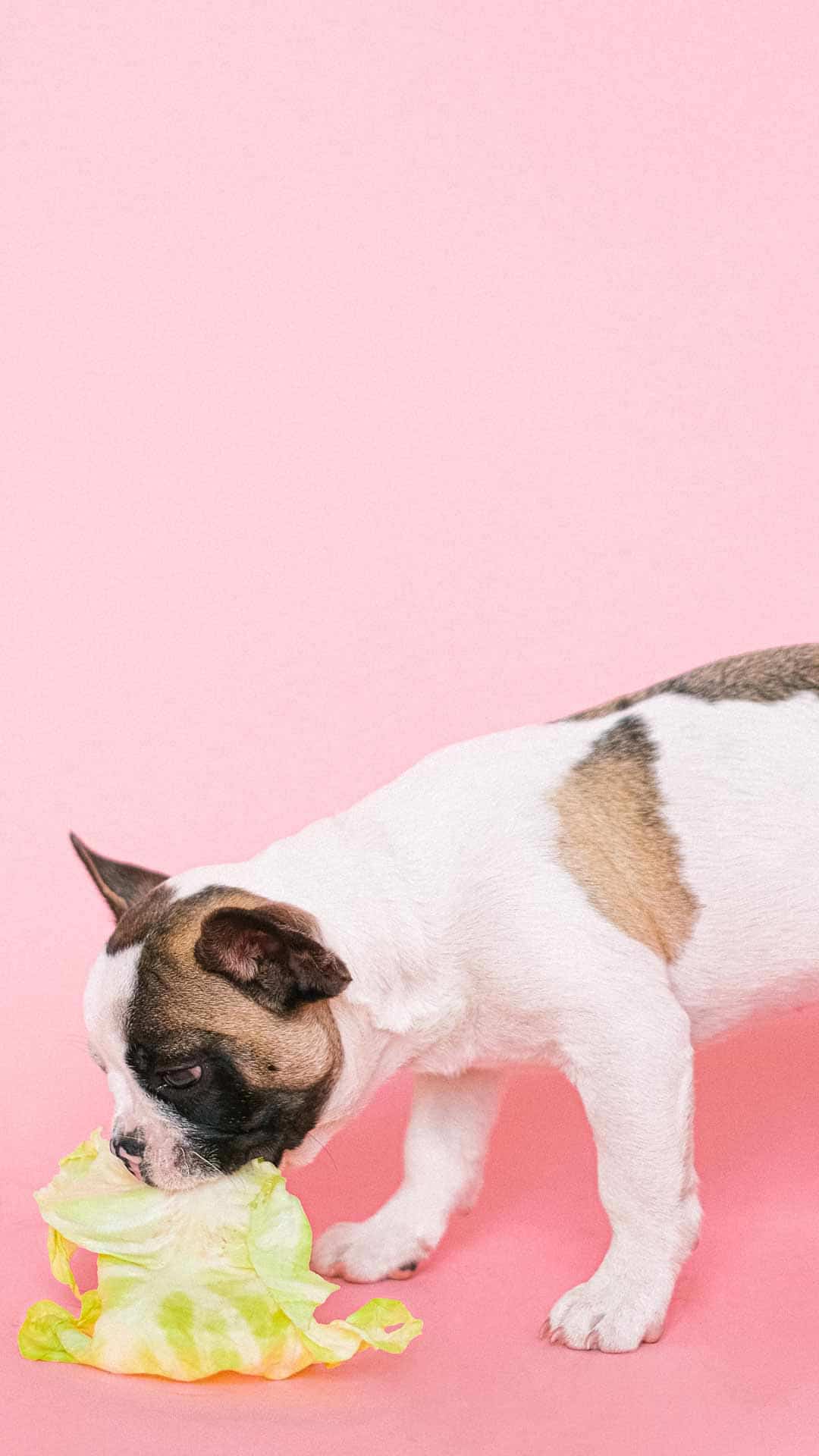Immediately stop feeding vegetarian dogs or cats large amounts of vegetables or fruits for a long time. Why do you have to feed your cat and dog meat? Please share if you are a true cat lover. The following article of Pet Mart will specifically analyze the issue of vegetarianism specifically for cats and dogs.
3 reasons to confirm that cats and dogs are not vegetarians
Recently, we have received a lot of arguments about whether or not we should feed our dogs and cats vegetables. How much to eat? How long does it take? And especially, there are opinions that affirm that cats and dogs are vegetarian and still healthy normally.
While it’s possible that dogs can be vegetarian, and with some dog breeds, they’ll basically grow when you feed them vegetarian. However, the effects of feeding dogs and cats a vegetarian diet for too long or for too long are clearly not significant, to the extent that the British Veterinary Association has advised pet owners not to give them a vegetarian diet.
According to Dr. Lisa Weeth, a veterinary nutritionist, she usually does not recommend vegetarian diets for cats and dogs. The issue of nutrition for dogs and cats, whether meat or vegetable, also needs to provide enough essential nutrients in a balanced way. Ensure the comprehensive development of the pet. Especially between the ages of 2 and 15 months of life. This is nearly impossible with a completely vegetarian cat and dog diet.
In this article, we will gather international knowledge, scientific documents, and consultations of domestic and foreign veterinarians to clarify all the above questions. If you are lazy to read the evidence, you can go straight to the conclusion at the end of the article.
First of all, we need to understand some scientifically proven axioms in cats about Protein – Carbohydrate – Vitamin as follows:
- Dogs and cats are carnivores. The instinct that Mother Nature gives to cats and dogs is to live and get energy from Protein and protein of animal origin. Not plants.
- Dogs and cats have very little carbohydrate (starch-sugar) needs (2-5% of the diet). Because the cat’s digestive system lacks the enzyme amylase (amilase) to break down carbohydrates into simple sugars.
- Dogs and cats get vitamins from meat, offal, and undigested food in the organs of animals they hunt. If there is a lack of vitamins, cats will instinctively eat some plants such as grass. But will not digest) to supplement.
Do vegetarian cats and dogs and vegetables have enough nutrients?
If you have given the dog and cat a vegetarian diet (mixed rice with vegetables) and confirmed that they live normally. Please say that all animals in this world are “normal” until they get sick and die. Fasting will lead to changes in the pH of the urinary system, which can lead to kidney stones.
In addition, if there is no or too little animal protein in the kitten food, it will cause a serious Taurine deficiency. Can cause blindness in cats due to reduced retinal cells. If you want to change the world, do it alone. Because humans are omnivores and cats are carnivores. Please stop this unnatural crime.
If the cat eats a high amount of carbohydrates, it will cause diabetes, obesity, and reduced protein absorption. And it’s harmful to the internal organs because the cat’s digestive system is not designed to digest too much starch. Note that potatoes are 20% carb, sweet potatoes are 21%, and pumpkins are 12%. To supplement vitamins for cats and dogs, we have food sources rich in vitamins and minerals such as sea fish, dried seeds, barley grass (cat grass), supplements, and possibly vegetables.
Animal and plant proteins are not the same
If the pet owner is a vegan or vegetarian and wants to turn his pet into a fully vegan dog, that’s quite understandable. So, is it okay for a healthy adult dog and cat to gradually switch to a vegan diet? In some cases, it is still possible, as long as the cat and dog are provided with the right balanced nutrition for their life stages. However, this is not as simple as you think.
A completely vegetarian diet for dogs and cats can provide some protein, but that level is not enough for dogs to grow. In addition, plant-based proteins do not have the required amount of amino acids. To meet the dog’s needs as in animal protein. Veterinarians look at the biological value (BV), a measurement used to determine the effectiveness of a particular protein.
Another problem with plant-based proteins is that they tend to be less digestible than animal-based proteins. So if you feed them soy, it will be metabolized differently than if you feed them chicken or beef. And so we need to make sure that plant-based proteins are digestible and can be used safely by dogs. Otherwise, we can make a big mistake, especially with pregnant cats and dogs, nursing babies, or growing cats and dogs.
Some vegan diets can be lacking in essential amino acids like taurine and L-carnitine, according to Dr. Susan Jeffrey, a veterinarian at Truesdell Animal Care Hospital in Madison, Wisconsin. found in meat. A lack of these nutrients can lead to health problems like heart disease. A taurine deficiency can lead to dilated cardiomyopathy.
The harmful effects of long-term vegetarianism on dogs and cats
If you abuse vegetables for the reason of adding vitamins and fiber in large amounts and for a long time, there will be the following disadvantages:
Excess of Vitamins: Not controlling or not calculating the number of vegetables will lead to this situation. In addition, if you use products with frozen and thawed vegetables, most of the water-soluble vitamins will be lost. Synthetic vitamins may be harder to absorb than natural vitamins but will be more complete. Since it has been specifically designed for dogs and cats, it ensures a controlled dose without causing excess or toxicity.
Causing excess carbohydrates: As mentioned above, boiled potatoes have 20% Carbs, sweet potatoes are 21% and pumpkin is 12%. So how to supplement so that the amount of Carb does not exceed 2-5% of the cat’s diet is something that needs to be calculated very carefully by math. Can’t rely on experience as someone said: “Eating from then until now, you won’t die”.
Unsafe mixed vegetables: Fresh mixed vegetable cat foods often use this ingredient to sell at a cheap price. Followed by the use of low-quality animal products such as chicken head and neck, and chicken bones to reduce costs. These types of products, even if they are pureed, can still contain chipped bones that can cause bone damage. Or if it’s a sharp bone, it can pin the throat and cause an infection. Pureed vegetables are an ideal environment for harmful bacteria to grow. That’s why fresh food with vegetables must always be frozen.
Furthermore, not all vegetarian dog foods are created equal. To ensure the dog’s diet. Strict nutritional quality control standards should be met. Look at the label or call the company. On the packaging of dog food products, there should be a statement stating that this food contains complete nutrition. Or at least, it must comply with the requirements of the AAFCO organization. In addition, dog food products must clearly state the appropriate age for use.
In what case should cats and dogs be vegetarian?
Joe Bartges, a veterinary nutritionist and professor of Nutritional Medicine at the University of Georgia, Athens, says: A vegan diet can be a sensible option when your dog or cat is in need of avoidance proteins from animal meat. Examples include kidney disease, urate bladder stones, and inflammatory bowel disease (IBD).
Some dogs and cats are more sensitive to animal protein than plant-based protein. So switching them to vegan cat food. May be helpful in cases of intestinal disease IBD.
That’s not to say that a vegetarian diet is better for all cases of IBD in dogs and cats. With IBD, it really depends on how responsive the individual is. So if your dog or cat is allergic to food. We need to keep track of where the protein components come from. Whether it is of plant or animal origin.
Notes when feeding vegetarian cats and dogs
If you are forced to give your dog or cat a vegetarian diet after consulting with your veterinarian, there are still a few things to keep in mind:
First, plant-based proteins tend to make the urine more alkaline. If you are completely switching to a completely vegetarian diet. And it’s a moderate protein and doesn’t add any uric acid. It can put your dog at risk for struvite stones.
The changes are easy to see in the dog’s coat. It can tell you that your dog is not getting enough essential fatty acids. See if the dog’s coat is shiny or becomes dull and dirty. Do dogs have scabs? People often think that these symptoms have nothing to do with dietary changes because it takes two to three months to appear.
If you notice any changes, bring your dog in to see your vet. Also, at your dog’s annual routine health checkup. Your vet will do blood tests and a urinalysis. To make sure food is digested and absorbed the way it should.
The reference sources for information related to vegetarian cats
- Feeding Your Cat: Know the Basics of Feline Nutrition – Lisa A. Pierson, Doctor of Veterinary Medicine, Specialist in Preventive Nutrition (Catinfo).
- Your cat’s nutritional needs – A Science-Based Guide For Pet Owners – US National Institute of Science.
- Taurine in cats – Document of the VCA veterinary hospital system with more than 750 hospitals in the US & Canada.
- The carnivore connection to nutrition in cats – Debra L. Zoran, Doctor of Veterinary Medicine. This article has been reviewed by the American College of Veterinary Nutrition.
The approved documents are generally available to cat owners around the world. If there is a difference due to the environment, it will not be significant.

